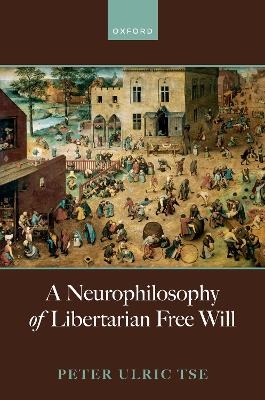
A Neurophilosophy of Libertarian Free Will
Seiten
2024
Oxford University Press (Verlag)
978-0-19-887695-3 (ISBN)
Oxford University Press (Verlag)
978-0-19-887695-3 (ISBN)
This book offers an intellectually fierce defence of Libertarian Free Will seen from a neuroscientific and biological perspective. Tse argues that causation in living systems is dominated by non-linear goal-seeking automatic feedback loops and a continual criterial reparameterization of what will count as an adequate solution to goal fulfilment. For this reason, outcomes are neither determined nor random. That is, for each cycle, outcomes could have turned out differently than they actually did.
Humans, he argues, have two kinds of libertarian free will. One type concerns the ability to choose freely and is shared with other highly developed animals. Second-order free will, in contrast, is uniquely human, and concerns envisioning a new self, then working toward the realization of that vision over a long period of time. As such, free will is understood to be centrally realized in acts of imagining and deliberation, whether free actions follow or not.
A Neurophilosophy of Libertarian Free Will discusses these key philosophical issues considering the latest data and theories of neuroscience and will be of interest to academics, students, and anyone interested in the issue of Free Will.
Humans, he argues, have two kinds of libertarian free will. One type concerns the ability to choose freely and is shared with other highly developed animals. Second-order free will, in contrast, is uniquely human, and concerns envisioning a new self, then working toward the realization of that vision over a long period of time. As such, free will is understood to be centrally realized in acts of imagining and deliberation, whether free actions follow or not.
A Neurophilosophy of Libertarian Free Will discusses these key philosophical issues considering the latest data and theories of neuroscience and will be of interest to academics, students, and anyone interested in the issue of Free Will.
Peter Ulric Tse received a BA in Physics and Math from Dartmouth College in 1984, and a PhD in Perceptual Psychology in 1998. After completing a post-doc in Brain Imaging at the Max Planck Institute for Biological Cybernetics, he returned to Dartmouth as a professor, where he has been a teacher and researcher since 2001.
1: Introduction
2: The Basic Questions
3: The Philosophy of Free Will
4: Scientific Arguments against Free Will
5: The Neuroscience of Free Will
| Erscheinungsdatum | 22.08.2024 |
|---|---|
| Verlagsort | Oxford |
| Sprache | englisch |
| Maße | 165 x 240 mm |
| Gewicht | 682 g |
| Themenwelt | Geisteswissenschaften ► Philosophie |
| Geisteswissenschaften ► Psychologie ► Biopsychologie / Neurowissenschaften | |
| ISBN-10 | 0-19-887695-5 / 0198876955 |
| ISBN-13 | 978-0-19-887695-3 / 9780198876953 |
| Zustand | Neuware |
| Haben Sie eine Frage zum Produkt? |
Mehr entdecken
aus dem Bereich
aus dem Bereich
Grundlagen, Klinik, Rehabilitation
Buch | Softcover (2024)
Urban & Fischer in Elsevier (Verlag)
56,00 €
Grundlagen, Klinik, Therapie und Verlauf der …
Buch | Softcover (2024)
Kohlhammer (Verlag)
84,00 €
Pädagogisch-didaktische Ansätze im Rahmen des multimodalen …
Buch | Softcover (2021)
Kohlhammer (Verlag)
26,00 €


